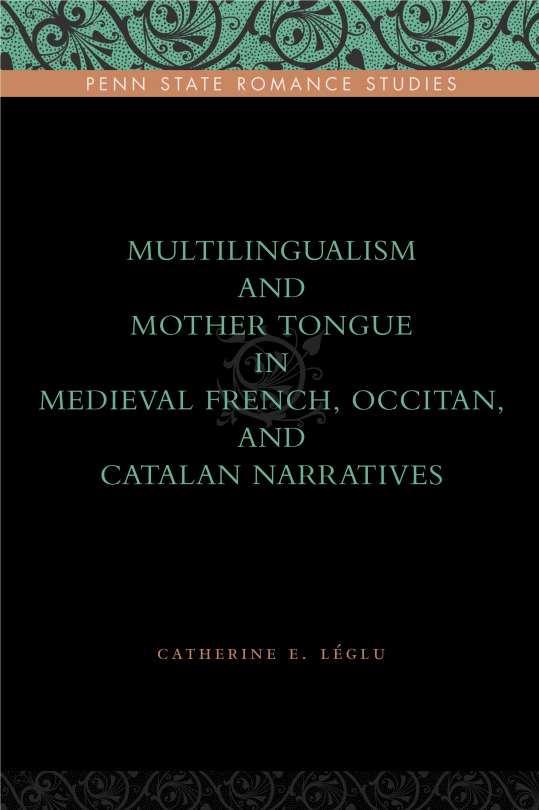#linguistic studies
Text
Be wary of linguistics rant, Elden Ring ahead
Ok so I just made a different post about this but I need to elaborate: The Elden Ring messaging system is legitimately such an interesting microcosm about how language is used as a tool and shaped to suit the needs it's being used for. I could actually make an entire study about how this can be used to better understand the formation of pidgin languages in the same way that epidemiologists studied the Corrupted Blood Incident in World of Warcraft to better understand the mechanics of how disease affects human behavior. Video games as an academic lens into peoples' minds has always been a fascinating topic to me, and by the end of this, you'll see why.
First off, message.
So for those not indoctrinated into the series/game, Elden Ring is a big open world game made by From Software, which won game of the year 2022 among some other awards (if you've played it or know anything about it, just skip to the next header). Each player plays as a Tarnished and explores this massive environment called The Lands Between individually, but if another player is walking in the same area that you are, you can see their "ghost" moving through the world, and you can "invade" or "be summoned" into another player's iteration of the world in order to briefly interact with it before returning to your own iteration. This occupies a weird space in between singleplayer and multiplayer, with these heavily limited and kind of random methods of interaction between players, but that's not the most interesting way of communicating with your fellow Tarnished; that title goes to the messages system. You can write a message onto a small stone, and leave it on the ground, and then that little stone with the message on it will have a random chance to appear in any player's iteration of the world for them to read. This is a tradition which has been going in From Software's games long since before the inception of Elden Ring, although I'm mostly going to be focusing on the message system of that title, because documenting the history of the 13+ years running Soulsbourne franchise is way too much, even for a nerd like me. The point is that messages are a lot more likely to be seen than any other method of player-to-player interaction, and you can even leave little "gestures" to go with them, where the reader can see your character striking a pose while they read the message. What a neat little mechanic, which definitely doesn't have any hidden layers of depth, and certainly wouldn't spawn an entire emergent system of pseudolinguistics, right?
No message ahead, be wary of mimicry
Well, when I said that messages are written by other players, that was a lie. To make a message, you don't type it out with your keyboard, you select what you want to say, from a big list of preset phrases. It works that way for a lot of reasons, foremost of all as a profanity filter, but also to prevent too many spoilers and maintain atmosphere. The sets of phrases are incredibly limiting, famously requiring players to use weird fake old-english diction in order to express a simple thought (Strong foe ahead, be weary of death. Look carefully ahead, visions of item. Suffering, o suffering, why is it always bad luck? etc). This seems like a limitation which would put a serious damper on anyone trying to actually communicate their thoughts, but gamers are a persistent sort, and have a lot of trouble taking no for an answer. They also have way too much time on their hands, and like to solve puzzles, a terrifying combination of traits, and the perfect one to accidentally create a conlang. With the unexpectedly massive audience that this game picked up on launch, millions of people left messages desperately trying to get something across, and if the game's preset vocabulary didn't contain the phrases to express it, they would forge their own path. Any big fans of linguistic history can already tell the direction that this might be going, as we move on into the next chapter:
Teacher, Liar, Lovable Sort
When the game released, there was chaos. The Lands Between are fraught with hidden passages, deception, and blatant bullshit, and the first kind of players leaving messages tried to helpfully communicate what you could trust, and what you couldn't. This is what the message system was intended for after all, giving advice to your peers, and what many people still use it for today. The second kind of players tried to do the opposite, deliberately leading people to their doom, just because they could. The third, and most numerous sort, were simply awestruck at everything the game had to offer, and left a series of remarks on the beauty and humor of the world. The messages left by each group are pretty easy to differentiate to the trained eye, which is the main feature causing me to point out this division of players. Let's call these groups the teachers, the liars, and the lovable sorts. A teacher can be recognized if their messages suggest something within reason, and being backed up by the peer-review of nearby messages to the same effect. If three messages are all sitting on the ground next to eachother, each saying something along the lines of "seek up, look carefully ahead", then a local collage of teachers are trying to let you know about a secret path ahead leading you up towards a hidden objective. However, a single message next to a bloodstained cliff-edge stating "jumping required ahead" is almost certainly a liar, trying to deceive an unsuspecting player into making a dubious leap. Liars sometimes use slightly simpler grammar than teachers do, being less committed to getting their point across. Wait a minute, linguistic variance based on intent? No no, this is just a video game about fighting monsters, surely such an interesting emergent system wouldn't arise from something like that. Lastly, the lovable sorts have the most ranging grammar, spanning from a simple word such as "dog" (a word used colloquially to describe all creatures, from turtles to dragons), to complex sentences requiring the combination of many phrases. However, a lovable sort can be differentiated by the fact that they merely remark upon the world as it is, instead of trying to offer advice to other players, as a teacher or liar might. Some of their most iconic phrases are "Elden ring ahead", used to sarcastically denote a dead end where a player might have been expecting treasure, "you don't have the right, o, you don't have the right" which indicates a locked door, or the world-famous "try finger, but hole", a phrase which explains itself. The most incredible thing about the words of the lovable sort, is that they all require a little bit of thinking to understand their actual meaning, but once you get the hang of it, it becomes like a second language to you! Wait a minute, a second language?
Message? Wasn't expecting introspection
As time went on, the three main groups of message-writers still kept chugging along, creating new works of writing every day, but advancements in understanding of the game's inner workings allowed these messages to become more and more complex. Compound words started to be formed to represent concepts outside of the preset vocabulary, like "skeleton, house" for coffin, "dung, key" to describe the donkeys accompanying traveling merchants, and "edge, lord" being used to refer to the NPC Ensha, a man wearing flamboyant armor made out of bones who takes himself way too seriously. It's worth noting in this section that for a specific period of time, The Lands Between were overtaken by a horde of messages stating only the words "fort, night". Despite the crude and humorous nature of the entire thing, it was clear to see that the linguistic patterns of the Elden Ring community were evolving into their own beast, far beyond the usages that the developers had intended. Words had shed their original meaning, to instead take up contextual meanings based on how players used them, effectively becoming different words entirely. Depending on how you define this, it's either a microcosm of incredibly fast and severe linguistic drift, or the emergence of a new pidgin or conlang entirely. If you really stretch things, you could almost call the message system of Elden Ring an entirely new language in and of itself.
Well done, victory ahead!
I think that video games are an excellent way to observe human behavior under conditions which are controlled, accelerated, and completely recordable, and this is the closest that we've ever seen to an entire language growing completely from scratch. People are always the same, whether you want to call it instinct or just cyclical tendencies, but normally the formation of a new language can take incredible periods of time, hastened only by tragic events like diaspora or massive losses of cultural knowledge (research what's been happening to Gaelic as a spoken language for more info about this sort of thing, it's kind of depressing but is also important to learn about, and there's a lot of people on this site talking about it who can do the topic way more justice than I can). Even for other topics which either require great passage of time, or great tragedy in order to research (I.E. geology or epidemiology, respectively), there are a lot of simulations and predictive models which can tell us how these systems behave without actually experiencing them. Linguistics has never had this sort of thing...until now, perhaps. Obviously there won't be any academic breakthroughs based on a bunch of people online all writing "rump ahead", but it's an incredibly interesting thing to see happening for a field which is so hard to actively advance, and it could lead to actual scientific methods of generating new languages via human interaction for research purposes. Of course, there's always the sizable chance that this goes nowhere and I just wrote this insane rant because I like to type, but if nothing else, I at the very least exposed some of my mutuals to "try finger, but hole".
#elden ring#linguistics#elden ring ahead#behold dog#dung key#pidgin language#pidgin#language#old english#linguistic studies#language history#conlangs
59 notes
·
View notes
Text


End of week 1/12
New semester has begun! Here is the list of the classes I am taking :
linguistic anthropology
psycholinguistics
semantics
historical linguistics
language acquisition
statistics
russian
I feel really motivated, this past week I have surprised myself with great productivity, I hope I’ll be able to keep the rhythm I managed to set.
Lately, I work best at the dinner table than my desk. I love being surrounded by the ambiant noises of a living home.
Thank you so much @elinordinary for sending me your psycholinguistics notes, it helped me so much ! You’re the best ! 💕✨
#linguadesk#studyblr#studying#studyspo#uni life#college life#academia#linguistics#linguistic studies#handwritten
192 notes
·
View notes
Text


A slow week …
I’ve been pretty much sick the whole week and today was the only seminar I could attend to: so again from tomorrow I’ve nothing to do except studying in my little room ^^;
📖Studies📖
- Linguistics: Words, metaphors and metanomy
- Literature: history and criteria of short stories and essays
🌼Life🌼
Hello spring! It’s finally sunny outiside again! I live in Norway so I haven’t seen the sun properly since August last year hahah … I’ve tried to live my life recently as analogue as I can: I’ve listened to my favourite songs on cassette through Walkmans, deleted all social media apps (except Tumblr) to stop myself from scrolling and reading during the idle minutes of my everyday life. It’s been great!
It makes me think of wanting to write letters to people (I don’t have anyone I could write letters to) but I would love to have penpals again.
Until next time~
#blog post#dark academia#writer blog#bookblr#reading#aestetic blog#studyblr#personal#literature#lit student#linguistic studies#language study#studyinspo#study blog#study aesthetic#studyspo#retro style#alt aesthetic
17 notes
·
View notes
Text
You Can't Hate A Particular Language
Really, we actually can't hate a particular language. Every language is unique and actually there is no difficulty in learning a particular language. The difficulty of a language is subjective and must also be based on certain linguistic criteria like phonology or writing system. For example, Japanese may be one of the languages with the easiest pronunciation but not the writing system.
#language#languages#language stuff#language learning#learning languages#language blr#languageblr#language study#linguistics#polyglot#polyglot community#polyglot problems#langblog#multilingual#bilingual#lingblr#langblr#langbr#language blog#linguistic studies#linguistics tag#linguistics student#linguistics i guess#languages are fun#languages are easy#linguistic relativity
10 notes
·
View notes
Text
Every single person studying a language when they recognize the most basic word of the language in a text or a video

59K notes
·
View notes
Text
0 notes
Text
Unlocked Book of the Month: Multilingualism and Mother Tongue in Medieval French, Occitan, and Catalan Narratives
Each month we’re highlighting a book available through PSU Press Unlocked, an open access initiative featuring scholarly digital books and journals in the humanities and social sciences.

About our November pick:
The Occitan literary tradition of the later Middle Ages is a marginal and hybrid phenomenon, caught between the preeminence of French courtly romance and the emergence of Catalan literary prose. In this book, Catherine Léglu brings together, for the first time in English, prose and verse texts that are composed in Occitan, French, and Catalan-sometimes in a mixture of two of these languages. This book challenges the centrality of "canonical" texts and draws attention to the marginal, the complex, and the hybrid. It explores the varied ways in which literary works in the vernacular composed between the twelfth and fifteenth centuries narrate multilingualism and its apparent opponent, the mother tongue. Léglu argues that the mother tongue remains a fantasy, condemned to alienation from linguistic practices that were, by definition, multilingual. As most of the texts studied in this book are works of courtly literature, these linguistic encounters are often narrated indirectly, through literary motifs of love, rape, incest, disguise, and travel.
Read more & access the book here: https://www.psupress.org/books/titles/978-0-271-03672-4.html
See the full list of Unlocked titles here: https://www.psupress.org/unlocked/unlocked_gallery.html
#Occitan#Middle Ages#French#France#Catalan#Literary Studies#Romance#Multilingualism#Linguistics#Linguistic Studies#PSU Press Unlocked
0 notes
Text


study date at a friend's house 🪴
🎧 - watch what happens next by waterparks
#the friend MIGHT be an elf 🤔#studyblr#langblr#aesthetic#study aesthetic#study inspiration#studying english literature#studying linguistics#studyspo#academia#jaystudies
2K notes
·
View notes
Text
if I asked very nicely would you all be willing to take a one minute anonymous survey for my linguistics class. if the answer is yes, please click here. thanks :)
(sharing for a better response size would also be very appreciated)
#linguistics#quil's unholy underworld#i have no clue how to tag this#it is quite literally 2 multiple choice questions#keeping it real simple#it's a required project in an intro class#we didn't even get to choose the topic#anyway#it's less important the results#it's intended to teach us the scientific method in practice#which I have done. like 5 times now in different classes it feels#i literally studied the demographic of the library by age an entire summer once#anyway. here's hoping this is worded and structured well enough to do what I need it to#take my survey boy#please
1K notes
·
View notes
Text
I love you phonetics I love you descriptivism I love you minority languages I love you dialects I love you accents I love you suffixes and prefixes I love you fossil words I love you outdated letters and pronouns I love you etymology I love you preservation of endangered languages I love you visible remnants of the way a language used to be I love you linguistics
#where are the linguistics enthusiast mutuals#elli rambles#language#linguistics#this post is brought to you by me being sad it will take a year longer for me to begin studying linguistics#love it when your disabilities get in the way of your dreams 🙃#repetition#m#languageposting#breached containment (derogatory)
8K notes
·
View notes
Text
接続詞(せつぞくし)
conjunctions - words that are used to link phrases together
情報を加える // Adding information:
しかも besides
そのうえ moreover, on top of that
さらに moreover, on top of that
そればかりか not only that, but also...
そればかりでなく not only that, but also...
情報を対比する // Putting into contrast:
それに対して in contrast
一方 whereas
他の可能性・選択肢を言う // Giving alternatives:
あるいは or perhaps (presenting another possibility)
それとも or (presenting another option within a question)
結論を出す// Drawing a conclusion:
そのため for that reason
したがって therefore
そこで for that reason (I went ahead and did...)
すると thereupon (having done that triggered sth. to happen)
このように with this (adjusting a conclusion to the arguments given beforehand)
こうして in this way
理由を言う // Giving a reason:
なぜなら...からだ the reason is
というのは...からだ the reason is
逆説を表現する // Expressing a contradiction:
だが however, yet, nevertheless (contradicting what one would have expected)
ところが even so (spilling a surprising truth)
それなのに despite this, still
それでも but still (despite a certain fact, nothing changes)
説明を補う // Amending one's explanation:
つまり that is, in other words (saying the same thing using different words)
いわば so to speak (making a comparison)
要するに to sum up, in short
説明を修正する // Revising one's explanation:
ただし however (adding an exception to the information stated beforehand)
ただ only, however
もっとも however (obviating any expectations that might arise through the previous statement)
なお in addition, note that (adding supplementary information)
話題を変える // Changing the subject:
さて well, now, then (common in business letters after the introductory sentence; is often ignored in tranlations)
ところで by the way
#文法#grammar#conjunctions#japanese grammar#jlpt n2#japanese langblr#japanese language#language#japan#japanese#japanese vocabulary#langblr#linguistics#studyblr#study blog#studyspo#study motivation#study aesthetic#study notes#learning japanese#nihongo#日本語#日本語の勉強#light academia#light acadamia aesthetic
631 notes
·
View notes
Text

1K notes
·
View notes
Text
Phoenician Alphabet, The First True Alphabet
Phoenician alphabet, the first true alphabet, the ultimate ancestor of most modern scripts like Greek, Latin, Hebrew and Arabic alphabets. It has 22 letters, all consonants (it's actually an abjad) and written from right-to-left horizontally.

The Phoenician alphabet is a direct descendant of the Proto-Sinaitic alphabet. Developed by the Phoenicians and thanks to their trade especially maritime trade, it spread across West Asia and Mediterranean, making it the most widely used alphabet at that time.
Maybe this is subjective but this alphabet has a big influence, especially two of its derivative variants, Greek and Aramaic. Its simplicity makes it easy to learn and widely adapted. It's the most well-known and valuable heritage of the Phoenicians, thanks to them.
The Greeks modified the Phoenician alphabet, especially by adding vowels, thus creating the Greek alphabet. The Etruscans modified the Greek alphabet (specifically the Euboean Greek alphabet) and creating Etruscan alphabet which is the direct ancestor of Latin alphabet.
The earliest inscriptions of this alphabet date from around the 12th or 11th century BCE. Many come from Byblos, Lebanon and Carthage. This was used to write Phoenician, Punic, Old Aramaic, Ammonite, Moabite, Edomite, Hebrew and Old Arabic.
The use of the Phoenician alphabet proper (the original alphabet, not modified) began to disappear in the 1st century BCE especially after the destruction of Carthage. Derivatives of this alphabet elsewhere at that time were used by many languages.
In the photo I wrote the Phoenician alphabet on paper along with the names of the letters and their transcription. Sorry if the writing seems stiff. Again, thanks to Phoenicians for this.
Taken on Saturday, 24 February, 2024 at 02:37 with Samsung Galaxy A10s.
#sofiaflorina#phoenicians#phoenician alphabet#alphabet#writing system#linguistics#linguistic studies#linguistics tag#historical linguistics#language#languages#history#greek#latin#hebrew#aramaic#arabic#carthage#proto sinaitic#greeks#etruscan#polyglot#polyglots#language learner#language stuff#language learning#langblog#langblr#langbr#language blog
11 notes
·
View notes
Text
Every now and then I think about how subtitles (or dubs), and thus translation choices, shape our perception of the media we consume. It's so interesting. I'd wager anyone who speaks two (or more) languages knows the feeling of "yeah, that's what it literally translates to, but that's not what it means" or has answered a question like "how do you say _____ in (language)?" with "you don't, it's just … not a thing, we don't say that."
I've had my fair share of "[SHIP] are [married/soulmates/fated/FANCY TERM], it's text!" "[CHARACTER A] calls [CHARACTER B] [ENDEARMENT/NICKNAME], it's text!" and every time. Every time I'm just like. Do they though. Is it though. And a lot of the time, this means seeking out alternative translations, or translation meta from fluent or native speakers, or sometimes from language learners of the language the piece of media is originally in.
Why does it matter? Maybe it doesn't. To lots of people, it doesn't. People have different interests and priorities in fiction and the way they interact with it. It's great. It matters to me because back in the early 2000s, I had dial-up internet. Video or audio media that wasn't available through my local library very much wasn't available, but fanfiction was. So I started to read English language Gundam Wing fanfic before I ever had a chance to watch the show.
When I did get around to watching Gundam Wing, it was the original Japanese dub. Some of the characters were almost unrecognisable to me, and first I doubted my Japanese language ability, then, after checking some bits with friends, I wondered why even my favourite writers, writers I knew to be consistent in other things, had made these characters seem so different … until I had the chance to watch the US-English dub a few years later. Going by that adaptation, the characterisation from all those stories suddenly made a lot more sense. And the thing is, that interpretation is also valid! They just took it a direction that was a larger leap for me to make.
Loose adaptations and very free translations have become less frequent since, or maybe my taste just hasn't led me their way, but the issue at the core is still a thing: Supernatural fandom got different nuances of endings for their show depending on the language they watched it in. CQL and MDZS fandom and the never-ending discussions about 知己 vs soulmate vs Other Options. A subset of VLD fans looking at a specific clip in all the different languages to see what was being said/implied in which dub, and how different translators interpreted the same English original line. The list is pretty much endless.
And that's … idk if it's fine, but it's what happens! A lot of the time, concepts -- expressed in language -- don't translate 1:1. The larger the cultural gap, the larger the gaps between the way concepts are expressed or understood also tend to be. Other times, there is a literal translation that works but isn't very idiomatic because there's a register mismatch or worse.
And that's even before cultural assumptions come in.
It's normal to have those. It's also important to remember that things like "thanks I hate it" as a sentiment of praise/affection, while the words translate literally quite easily, emphatically isn't easy to translate in the sense anglophone internet users the phrase.
Every translation is, at some level, a transformative work. Sometimes expressions or concepts or even single words simply don't have an exact equivalent in the target language and need to be interpreted at the translator's discretion, especially when going from a high-context/listener-responsible source language to a low-context/speaker-responsible target language (where high-context/listener responsible roughly means a large amount of contextual information can be omitted by the speaker because it's the listener's responsibility to infer it and ask for clarification if needed, and low-context/speaker-responsible roughly means a lot of information needs to be codified in speech, i.e. the speaker is responsible for providing sufficiently explicit context and will be blamed if it's lacking).
Is this a mouse or a rat? Guess based on context clues! High-context languages can and frequently do omit entire parts of speech that lower-context/speaker-responsible languages like English regard as essential, such as the grammatical subject of a sentence: the equivalent of "Go?" - "Go." does largely the same amount of heavy lifting as "is he/she/it/are you/they/we going?" - "yes, I am/he/she/it is/we/you/they are" in several listener-responsible languages, but tends to seem clumsy or incomplete in more speaker-responsible ones. This does NOT mean the listener-responsible language is clumsy. It's arguably more efficient! And reversely, saying "Are you going?" - "I am (going)" might seem unnecessarily convoluted and clumsy in a listener-responsible language. All depending on context.
This gets tricky both when the ambiguity of the missing subject of the sentence is clearly important (is speaker A asking "are you going" or "is she going"? wait until next chapter and find out!) AND when it's important that the translator assign an explicit subject in order for the sentence to make sense in the target language. For our example, depending on context, something like "are we all going?" - "yes" or "they going, too?" might work. Context!
As a consequence of this, sometimes, translation adds things – we gain things in translation, so to speak. Sometimes, it's because the target language needs the extra information (like the subject in the examples above), sometimes it's because the target language actually differentiates between mouse and rat even though the source language doesn't. However, because in most cases translators don't have access to the original authors, or even the original authors' agencies to ask for clarification (and in most cases wouldn't get paid for the time to put in this extra work even if they did), this kind of addition is almost always an interpretation. Sometimes made with a lot of certainty, sometimes it's more of a "fuck it, I've got to put something and hope it doesn't get proven wrong next episode/chapter/ten seasons down" (especially fun when you're working on a series that's in progress).
For the vast majority of cases, several translations are valid. Some may be more far-fetched than others, and there'll always be subjectivity to whether something was translated effectively, what "effectively" even means …
ANYWAY. I think my point is … how interesting, how cool is it that engaging with media in multiple languages will always yield multiple, often equally valid but just sliiiiightly different versions of that piece of media? And that I'd love more conversations about how, the second we (as folks who don't speak the material's original language) start picking the subtitle or dub wording apart for meta, we're basically working from a secondary source, and if we're doing due diligence, to which extent do we need to check there's nothing substantial being (literally) lost -- or added! -- in translation?
#translation#linguistics (sorta)#I love language so much#long post#subtitling#dubbing#transformative work#if you read all the way to the end - THANK YOU I am so impressed#localisation#this is not an academic essay but I still feel bad for not citing sources#low vs high context cultures and languages are concepts from intercultural communication studies#but idk how up to date that is or whether folks even still actually use them#I know they oversimplify things#but it helped me say what I was trying to here so shrug#languages#language soup#meta#language meta#fandom meta of sorts#thanks for the help sorting this out kayla <3#my nonsense
1K notes
·
View notes
Note
You actually CAN use different words to muffle emotional effects! we've been making euphemisms for death for as long as we've had language, that's why we say things like "passed away". even the word "die" was an old Norse euphemism for the old English word "sweltan", which itself is a euphemism for the even older word "diegan". (I really agree with your post, the origin of using "unalive" is incredibly dystopian and censorship is awful, I just wanted to infodump about linguistics)
that's actually really cool!!!! thank you for sharing!!!
also anon i'm in a linguistics fixation right now so we shall have a summer wedding
#ramble#i LOVE LANGUAGE#passing this onto my boyfriend who also loves language AND anything norse#if i could go back to uni and was actually smart i would study linguistics so i could be amy adams in arrival
325 notes
·
View notes
Text
So if I’m speaking Spanish, and I need to say an English word — like a name, brand, website, etc — I say it like a Spanish speaker
However, I hear a lot of speakers drop into a very native English accent in the middle of a sentence to say “el Starbucks” and whatnot (I love hearing it. Just a random completely English-sounding word in a Spanish sentence)
So I’m wondering…
From my personal observations I think native bilinguals do this more, but I’m interested in more data. Feel free to reply or reblog for a more detailed answer!
(EDIT: sorry the poll is so confusing. “YES” means yes, you do the thing I described, changing your accent to a different one in the middle of a sentence)
#resisting the urge to ask people to reblog for more results but like#I want to know#I have heard that it’s easier to switch between languages when you’re more fluent so my hypothesis makes sense#Quinn polls#quinn posts#langblr#language#linguistics#linguistics study#poll
580 notes
·
View notes